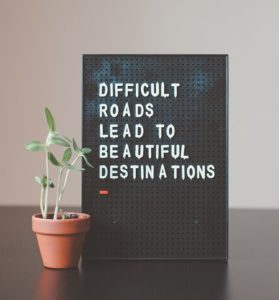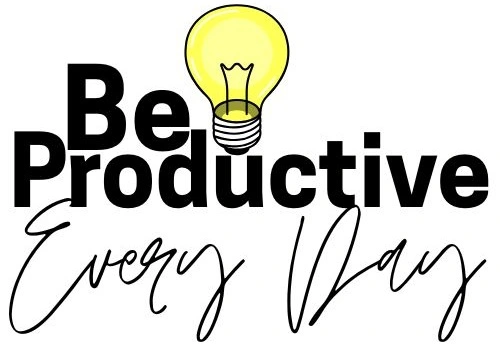
7 Fatal Signs You’ve Picked the Wrong Blog Niche (and What to Do Next)
There’s no reason to beat around the bush when talking about blogging niches. So, the thing is, one way or another, choosing the wrong blog niche will kill your chances of turning your blog into a profitable business.
But not everything is bad news. Picking the wrong blog niche doesn’t mean your future as a blogger is doomed forever. There are always ways to repair the damage done – but first, you need to identify where is the damage.
The sooner you identify if the following 7 fatal signs that you’ve chosen the wrong blog niche fit your case, the sooner you’ll be able to repair the situation and get closer to achieving your goal.
Disclaimer: This website is mainly business-focused. So when I talk about the “wrong blog niche”, I’m referring to blog niches that don’t convert. I’m talking about blogging as a business. If your blog is just a hobby, there is no right or wrong blogging niche — only the topics you enjoy.
Affiliate Disclosure: We get paid commissions for purchases made after clicking some links in this post. Read the full disclosure here.
Choosing the wrong blog niche means you are blogging for an audience that has no purchasing power or that you are not able to influence or reach since your competitors dominate the environment. Usually, it’s a combination of all these factors including some other minor details we’re going to discuss later in this article.
Unfortunately, many bloggers, usually beginners, choose their blogging niche guided only by their gut feelings, underestimating the importance of making data-based decisions.
As I always say here, to be successful in the blogging business, you need to make wise choices from the very beginning of your blog, including the right choice of blog niche.
But what’s done is done. You’ve already chosen a blogging topic and started your blog. By the way, you’ve been blogging for a while, but something is ringing… off. And you don’t really know what it is, but the fact is, you should be seeing signs that you’re heading in the right direction to make money blogging. So why are you not getting any?
Is it perhaps because you’ve chosen the wrong blog niche? Let’s discover.
7 Fatal Signs You’ve Picked The Wrong Blog Niche

While some of these signs are more alarming than others, all of these 7 fatal signs that you’re blogging in the wrong niche tell you to fight back ASAP! Especially if you recognize more than one signal on your blog.
In this article, I will show you how to reverse the situation. So keep reading!
#1 You Have No Idea How to Monetize Your Blog Niche Other Than Displaying Ads
First of all, it’s okay to monetize a website by displaying ads. However, monetizing a blog solely through ads takes a lot more waiting time to earn a substantial amount of money from your hard work. Is this one of the most passive ways to make money blogging? Yes, it is. But ironically, compared to bloggers who have diverse income streams, you will work more for less.
In your case, you might have studied your audience and your competition. But even so, you can’t think of any product to recommend (via affiliate links) or develop that might be beneficial to your readers.
Unfortunately, this is a sign that you may have picked the wrong blog niche.
#2 Affiliate Marketing Has Negligible Commissions in Your Blog Niche
As I’ve observed, the vast majority of people who hear about affiliate marketing but don’t work in the field think that Amazon is the only company that provides such a partnership.
I often get emails asking me if it’s worth starting a website to work as an Amazon affiliate. My answer is that it might be worth it. But in most cases, the affiliate site will only earn a few cents per sale.
Not very profitable and far from ideal, right? The reason is that the commissions Amazon pays are mostly 1.00% to 5.00% of the product value. The exceptions are exclusive Amazon products and beauty products, which have fixed amounts or commissions from 10.00% to 20.00%.
So, if your blog reviews expensive tech products, you could still earn good money per sale even if the commissions are low.
However, if your blog is a book review blog, don’t expect to earn more than $0.10-$0.20 per sale.
I used the Amazon Affiliate Program simply as an example here. Maybe you work with other companies. Regardless, if you’re earning commissions as low as $0.20, you’ve probably picked the wrong blog niche.
#3 Your Blog Audience Have No Purchasing Power
Perhaps your blog has an engaged audience that you love to interact with and have a lot in common with, hence everything looks promising. Such scenarios can be great for profiting through displaying ads — but not always for diversifying your income streams.
A warning sign that you’ve picked the wrong blog niche is having an audience that engages with you, posts comments and gives you feedback, but never buys anything you sell or recommend.
Maybe they would like to but don’t have the purchasing power to do so.
This is especially common with audiences made up of teenagers and young adults, especially if your blog traffic comes mostly from social media and not from Google or other search engines.
Such young demographics are not yet financially stable and traffic coming from social networks does not always convert well and has many disadvantages.
#4 You Started Running Out of Ideas for More Blogging Content Too Quick
As a blogger, you should add new content (aka blog posts) regularly if you don’t want to see your blog’s growth dormant.
Every rule has exceptions, of course. But such exceptions are rare.
If you find that you are running out of ideas about what to write for your blog, you have two options:
- Narrow down your niche and write about the smallest subcategories within your blogging topics.
- Expand your blog niche and include topics you’ve never covered before but which are at least minimally related to your current content.
If you can do neither, your current niche is too small. In the long run, that’s a fatal sign that you’ve chosen the wrong blog niche.
#5 You’re Blogging in a Niche You Don’t Really Enjoy or Care About
Some bloggers make the mistake of choosing their blog niches just thinking about the monetary value.
Okay, I kind of get it. We all need to get paid. Being a blogger is also my job.
But many of us have already worked jobs that we passionately hated. So I guess you don’t want your blog to be one more of those jobs, right?
From experience, I know it’s very difficult to commit to writing for niches that you don’t find interesting, genuinely hate, or damage your mental health, even if you are well-educated in those fields and maybe make good money doing so.
I’ve already sold two blogs for this very reason.
So, if your current blog niche doesn’t inspire you any motivation, the best thing for you might be to switch your blog niche. Unless you can afford to hire freelance writers – if you can, you’ll be just fine. Otherwise, you will end up putting your blog on the sidelines and never be able to monetize it to its full potential, even if you are in a lucrative niche.
#6 The Blog Articles You Write Don’t Generate Any Actions From Your Audience
The best blogger is not the best writer. The best bloggers are those who can communicate well with their audience.
To make money blogging, you need to teach and inspire your audience to take action. That’s how you influence them to better their lives and also how you eventually end up making money.
Failing to inspire your audience to take action through your articles is a huge red flag that you’ve chosen the wrong blog niche.
#7 You Started Blogging in a Niche with an Expiration Date
Blogging is a long-term commitment. The truth is, the articles you write today will take around 6-12 months to mature and start to rank in Google and generate leads.
This in itself is self-explanatory: if you write about passing topics, which will stop being trending topics next season, your articles will never mature to generate leads.
Non-evergreen blog niches can be anything from COVID-19-related to subcultures that young people (oh, how I feel old talking this way) are currently engaging through TikTok.
Both cases — one of extreme worldwide seriousness, the other something that teenagers of all generations have done — are eventual, circumstantial, and have an expiration date.
Another thing they both have in common is that they are both hot topics when they are happening. After their time, people will go on with their lives and will just barely remember that this happened.
If you started your blog based on some sort of trending topic, this is a fatal sign that you chose the wrong blog niche, as trends are never reliable in the long run.
The Internet has so fractured us globally that we no longer are looking for mass-culture experiences. […] Trends only work when there is a growing audience that buys into them. […]
And with the decline in trends comes a decline in the notion of there being such a thing as pop culture. Marketing companies can no longer take advantage of trends.
Did You Really Choose The Wrong Blog Niche? Be Sure There Isn’t Something Else Missing!
Before you consider your current niche doomed once and for all, you need to check if the problem is not elsewhere.
While you’re busy blaming your blog niche, sometimes the problem is in other areas of your blog. In this case, you can switch blog niches, but the problem will remain or eventually repeat itself.
Take a closer look at your website and your blogging history to be sure that:
- You really looked for other companies to work with affiliate marketing besides the most famous ones in your niche. In many blog niches, it’s not unusual to find less obvious companies that have commissions of $10-$50+ per sale! But you have to look for them.
- You tried to diversify your site’s income streams beyond working with Ad Networks and Affiliate Programs (through paid memberships, paywalls, courses, info products, merch, etc.)
- A keyword research tool such as KWFinder has been used to help you every time you face writer’s block. As your brain does not store all the data needed to find good long-tail keywords, you shouldn’t rely exclusively on it to come up with new topics in your niche. When using KWFinder, you enter your main keyword and select a preferred location and language. Then, KWFinder uses the Google Suggest algorithm to generate new keyword ideas for your blog. If you haven’t used KWFinder yet, click here to get a free trial with no credit card needed!
- A good Call To Action (CTA) has been used for each of your blog posts.
Perhaps it’s not because you’ve chosen the wrong blog niche that your articles aren’t converting. But because you’re neither inviting nor inducing your audience to take action.
- You are doing SEO the right way.
- Your blog is old enough to rank on Google (over 8 months).
- You have at least 30-50 SEO-optimized blog posts older than 6 months.
If you don’t recognize any or most of the above items in your blogging history, you should familiarize yourself with them as soon as possible. The problem may not be that you chose the wrong blog niche. But even if you did, if you switch blog niches, things won’t work out for you and your blog if you don’t put the items in the above list into practice in your blogging strategy.
Related Articles:
- Can Beginners Make Money with Affiliate Marketing? (If so, How Much?)
- How Long Does It Take to Make Money Blogging ($500-$1000 Monthly Blogging)
Can I Change My Blog Niche?
You can change your blog niche, yes. But changing your blog niche will come with sacrifices. Most likely, all or almost all of the work you’ve put into writing blog posts, structuring your blog, creating freebies, customizing your blog and more will be lost. Changing the blog niche is like starting from scratch again.
Okay, I get that ‘starting from scratch again‘ isn’t the happiest of answers. I know.
Everyone who starts a blog wants to get it right as soon as possible. Unfortunately, this doesn’t always happen. Even for those who have been blogging for a long time, starting a new blog is always a challenge. Also, it’s undeniable that choosing the right blogging niche is among the biggest challenges to face to be successful blogging.
If you’re sure you’ve chosen the wrong blog niche and that your blog’s main issue isn’t elsewhere, you need to accept that you’re going to have to change your blog’s current niche or even start a new blog in another one.
At least now you can identify the flaws in your current blog niche, making it unlikely that you will repeat the same mistakes. That alone increases your chances of getting it right next time!
READY TO DO IT RIGHT THIS TIME?
START A NEW BLOG WITH DREAMHOST’S SHARED UNLIMITED PLAN FOR AS LITTLE AS $35.40/YEAR & GET A FREE DOMAIN NAME! ➡➡➡ CLICK HERE TO GET THE DEAL!
How Do I Rebrand My Blog?

Fortunately, choosing the wrong blog niche doesn’t mean all is lost. In some cases, you have to start over. In others, things can be adaptable. But you’ll have to rebrand your blog.
To rebrand your blog, you need to have already chosen which topic you will blog on. Your new topic or niche will directly influence whether you have to change your domain name and whether your current audience will stay with you in the future.
Here are the steps you will have to follow to rebrand your blog:
- Choose a new domain name if your current one does not relate in any way to your future new niche. If your existing domain name is a broad, non-specific term – i.e., your own name – you may not need to change it. Now, if your domain name is something like ‘ruthdesign.com‘ and you’re going to get into a Pet niche, that won’t make much sense. Unless you create designs for/inspired by pets, I suppose (?).
- Send a notification email to your audience informing them of the changes that will happen in the future. Perhaps with a statement about why you decided to change, reminding them of how easy it is to unsubscribe from your mailing list if they don’t want to stay after the changes.
- Change logos, banners, descriptions, Site Title and Tagline, About page, etc.
- Make all your older blog posts private, if they won’t be useful anymore.
- Optimize your blog’s structure for SEO based on your new niche and topics.
- You can create new social media accounts (if you use social media) or rebrand old ones. The second option may be more advantageous if you have a Pinterest account with a lot of engagement.
Keep in mind that by switching niches and rebranding your blog, you may lose some if not all of the audience you have gained so far.
It is natural. You used to blog about subject Y. Now you will blog about subject X. Chances are, the audience interested in subject Y will not have the same interest in subject X.
But don’t let that hold you back! If you’ve decided to change your blog niche, it’s because you know your success lies elsewhere. Remember that you are not making progress with the audience you have now. If you allow it to hold you back, you will never have a profitable blog.
Can You Have Multiple Blog Niches?
You can have multiple blogging niches, but it is not recommended that you start blogging in many niches simultaneously. This is not good for your SEO. Having a blog with multiple topics and little content on each will make it harder for Google to understand what your blog is about. It is best to introduce other niches little by little.
If you blog about ‘Pets‘ and have 30 articles on ‘how to take care of your cats’ health during winter time‘, your chances are high to have good Google rankings for this topic.
It happens because Google recognizes that your site is richer in content when it comes to ‘cats healthcare‘ than, say, some other blog that has 30 blog posts each in a different niche.
Imagine the mess: only one article on ‘how to take care of of your cats’ health during winter time‘, another on ‘how to renovate old dressers‘, and another on ‘how to change a truck tire‘… Hard to tell what this blog could be all about, right? (But if you think cats and truck tires can be related somehow, lemme know! I might find it interesting.)
That’s what we don’t want. So, before expanding your blog to include a new niche, make sure you’ve explored your current one well. Also, introduce one new blog niche at a time. Then add lots of quality content to let Google know that your site is rich in content in this new niche!
7 Killer Tips to Find The Right Niche for Your Blog

It’s great that you won’t give up blogging because you’ve been blogging in the wrong niche! Now is the time to switch blogging niches and start over — but this time the right way!
Here are 7 killer tips to keep you from choosing the wrong blog niche again:
#1 Write Down All The Blog Topics in Which You Have Expertise or Interest on Paper
Google each of them and check out the blogs that come up. Here are the positive factors you should look for:
- If more professional blogs/websites appear in the results rather than pages on Tumblr, Reddit, Quora, etc.
- Are these blogs that appeared monetized in any way? If yes, how? Ads, affiliate marketing, courses, planners? If they don’t monetize their blogs, this is a bad sign.
- Many bloggers share income reports. You can always type in ‘income report‘ in the search bar of the blogs you visit to get a clearer idea of how much and how blogs in these niches you are researching make money.
After this step, you will have removed part of the potential niches and selected some favorites.
#2 In Which Blog Niches Could You Cover Less Explored Subtopics? Or Perhaps Uniquely or More Completely?
Of the potential niches that have survived in your list, in which ones could you write articles on less covered subtopics? And which ones could you write about in more detail and with expertise?
This information matters to know if you have a chance of ranking on Google even with competition.
To illustrate, maybe you are interested in writing about Music Production, but many other blogs are already talking about it. But not all blogs have detailed and illustrated tutorials, and your blog could take this place. Maybe there aren’t any Music Production blogs that focus enough on how to position the mics to record the drums. So, if this is a subtopic that you are knowledgeable about, you could write lengthy tutorials on it.
#3 Check If The Companies That Sell Products/Services in These Niches Have Affiliate Programs
Read the terms of the programs and check the value of the commissions. Affiliate programs that pay high commissions are beneficial as you will need to make fewer sales to reach your salary goal.
#4 Check The Conversion Rate in Your Industry
Checking the conversion rate in your industry is a great way to avoid choosing the wrong blog niche. The higher your conversion rate, the more leads you have per 100 visitors.
Most merchants have a conversion rate of 1% to 5% and find this rate extremely satisfying.
#5 Avoid Choosing Trending Topics as Blog Topics
Any topic that doesn’t have a long history of existence is likely to fade as quickly as it appeared.
Avoid these topics like the plague!
You don’t want to spend 18-24 months working hard on writing blog posts about topics that no one else will remember in two or three years.
#6 Check Which Niches You Can Write a List of At Least 30-50 Possible Blog Posts
It seems insane at first, but it’s between articles #15 and #20 that bloggers start to run out of ideas and struggle over what to write next.
If you can’t think of or find more than 30 possible blog post topics, then the niche is too small and won’t work in the long run.
Think of this list as a draft for your future blogging schedule. And definitely use KWFinder to help you with long-tail keywords you haven’t thought of!
#7 Never Pick a Blog Niche You Hate Just Because It’s Profitable
Find a middle ground instead. Blogging in a niche you hate, to an audience you possibly despise, is a recipe for failure. Blogging will just become another job you hate and you will have trouble staying motivated and productive at home (since most bloggers work from home).
READY TO DO IT RIGHT THIS TIME?
START A NEW BLOG WITH DREAMHOST’S SHARED UNLIMITED PLAN FOR AS LITTLE AS $35.40/YEAR & GET A FREE DOMAIN NAME! ➡➡➡ CLICK HERE TO GET THE DEAL!
Published on May 20, 2022. Last updated on August 3, 2025.






One Comment
chrome hearts trucker hat
Your writing skills are excellent. You provide us with sound advice that is also easy to understand. It really helps me out a lot.